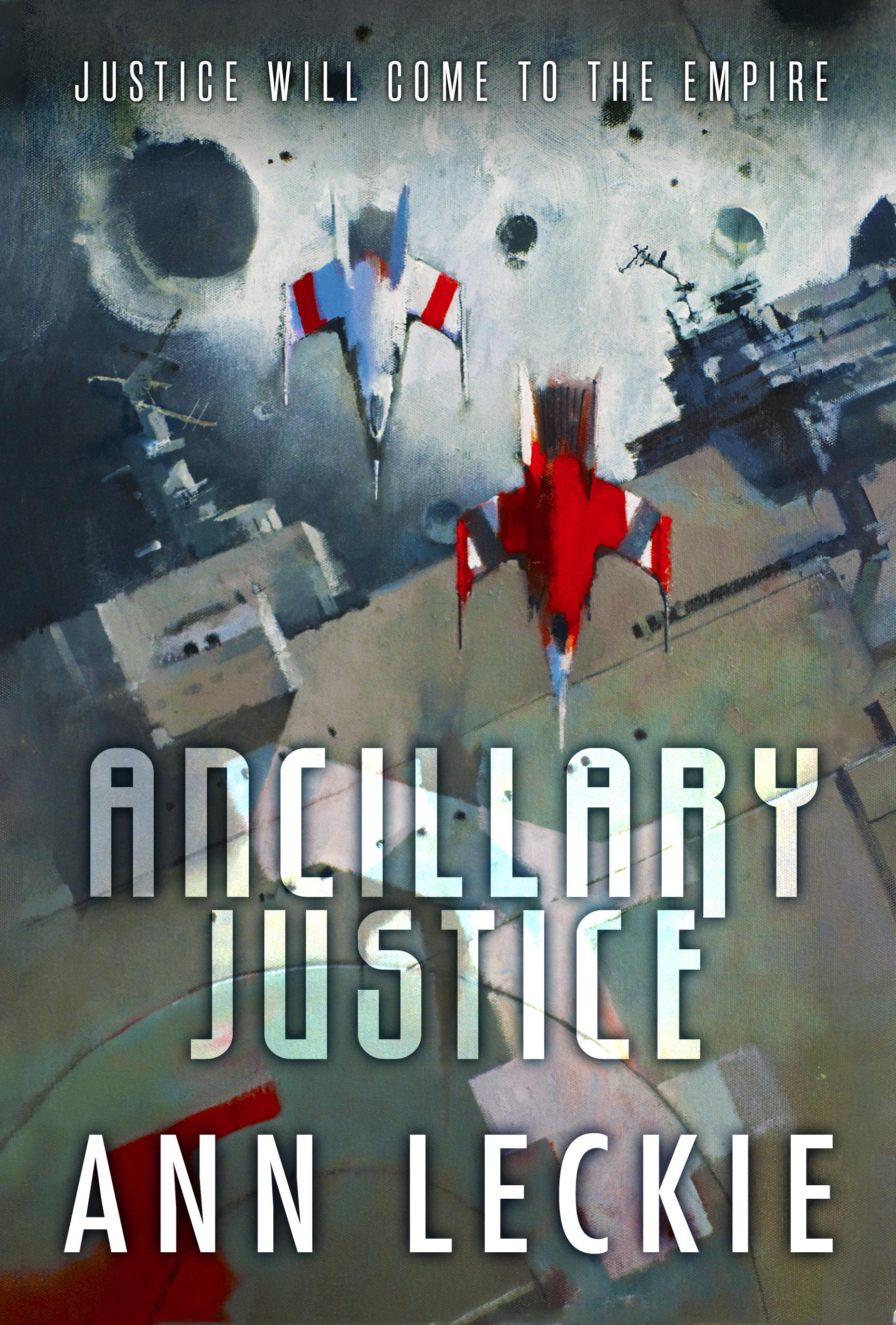written by David Steffen
Note: This is a reposted review of one that had run in December 2013. I’m reposting it here as part of my annual roundup of Hugo nominees.
 “Breq is both more than she seems and less than she was. ” This line is from the back-cover blurb of Ancillary Justice, the debut novel by Ann Leckie published by Orbit Books. Breq is a fragment of the ship AI known collectively as Justice of Toren, whose mind once occupied many bodies simultaneously: the body of the ship itself and thousands of ancillaries. Ancillaries are “corpse soldiers”, human bodies whose minds have been overwritten to function as appendages of a ship AI. At the point where the story begins, there is only Breq. All the rest of her is gone. She has chosen a mission, a dangerous mission against astronomical odds.
“Breq is both more than she seems and less than she was. ” This line is from the back-cover blurb of Ancillary Justice, the debut novel by Ann Leckie published by Orbit Books. Breq is a fragment of the ship AI known collectively as Justice of Toren, whose mind once occupied many bodies simultaneously: the body of the ship itself and thousands of ancillaries. Ancillaries are “corpse soldiers”, human bodies whose minds have been overwritten to function as appendages of a ship AI. At the point where the story begins, there is only Breq. All the rest of her is gone. She has chosen a mission, a dangerous mission against astronomical odds.
The genre is probably most easily described as a space opera SF. Galaxy-spanning empires, fights, drama, action. But I don’t mean that as a criticism. This book is everything that space opera should be: exciting, emotional, action-packed, and well-paced. The story hits the ground running–there’s no infodump to ground you in the politics or technology of the universe. Action is happening on page one, and reading the story is as much a puzzle to figure out the significance of different political factions, the limits of the available technology, as the story is happening around. With such a grand background, it would be easy to lose the individuals in the midst of it or to use one-dimensional characters from central casting, but the story is full of strong characters, including Breq herself, which give the very human, emotional components that a story needs to be really engaging.
In some ways Breq is superhuman–a very efficient killer when she wants to be, with flawless aim and a computer-like ability to calculate complex math. In other ways she struggles where an ordinary human would not–interpreting facial expressions, trying to tell male and female genders apart. It’s just taken for granted that she is extremely capable, but the book places her against such tough odds and difficult situations that even then her success is not inevitable. But it also manages to pull off the conclusion in a convincing manner so that it doesn’t seem a contrived success. A tough balance to strike but it is done well.
All that’s well and good, but what really makes this book stand out in my mind from other space operas is the interesting format of the point of view of Justice of Toren. The first scenes take place once Breq is all that’s left of Justice of Toren, and although she thinks and acts differently than a typical human, she is more-or-less very human-like, so the POV is not particularly novel. But scenes from that time period are interspersed with flashback scenes from Justice of Toren in all her legion of bodies. She is a single entity, despite all the bodies, receiving sensory input and exerting control over all of them simultaneously, and each body is basically an appendage of the whole, though the bodies are capable of functioning in isolation (as the continued existence of Breq shows you). Writing such a complicated point of view was a risk that could’ve easily made the book unreadable for anyone but the writer (who of course knows how it’s all supposed to fit together). Quite frankly, this is a point of view that shouldn’t work. In the hands of a lesser writer, it would be a garbled mess from which you wouldn’t be able to extract a narrative. Ann Leckie took a risk with this, and she made it look easy. If you’re interested in reading, if you’re interested in writing, even if you have no interest in space opera, you should try out the first few chapters of this book to see how she did it.
I’ll admit, there are parts of the book where I felt like I was falling a little behind, particularly having to do with the relation between some political/social factions. I think that I could sort these out with a second read-through. I don’t think these were the faults of the writing, but of me being a bit slow on the uptake, and even with that I was able to understand the central plotline perfectly well.
And, even better, this is slated to be the first book in a trilogy. The first book stands well enough on its own as a complete story that you don’t need to go further, but I’ll be looking forward to reading the next two books–it’s always hard to outdo the novelty of the first in a series, but I look forward to seeing what Leckie can do for a followup.
I’ve heard some buzz about Ancillary Justice in relation to Hugo and Nebula nominations. I will certainly be ranking it high on my Hugo ballot. I would love to see this book get all the recognition it deserves. Please read this book and tell everyone you know about it.
